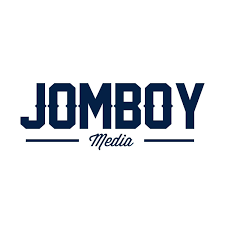Final Post: Me, You, Technology.
For good or for bad, the technology we have in today's society is the least sophisticated and least technological that it will ever be from this point forward, and that is scary to think about. We live in a world where humans are more attracted to the idea of online and social media gratification rather than real human connections and engagement.
In the United States, the average screen time is seven hours and three minutes. This average is up thirty minutes since 2017, and I believe will continue to rise. This statistic made me curious what my screen time is. This past week I averaged seven hours and fifteen minutes, slightly above the average. As a society, having technology attached to your hip and constantly staring at screens seems widely normalized and not even worth a second glance.
The “Mad World Remix” is a great representation of society as a whole and its relationship with technology. It portrays the problems with people and their connections to their phones. It feels clear to me that right from wrong is being blurred in people's minds. The girl hanging onto the side of the building and everyone taking out their phone to record is an example of blurring right from wrong.
People would rather get the video than help someone in need. Shown briefly in the video is a man turning into a monster after the person steps on his foot. This is also a side effect from young generations and their addiction to technology which is they do not know how to properly represent themselves in real face-to-face interaction and conflict. These problems stem from humans not having healthy relationships with technology, but what about technology not having a healthy relationship with you?
Technology can be your friend and can be one of the most useful tools in day-to-day life, but it comes with a cost, your privacy. One company that uses your information all of the time without you even knowing is Google. Google has an unpromoted section where it tracks and stores your purchase history, and makes it difficult for you to remove it. In an article titled Google Keeps and Eye on What You Buy, and It’s Not Alone it states, “Removing data from “Purchases” requires users to click each purchase individually: There is no way for users to easily delete their entire purchase history from Google’s servers. Removing the original emails doesn’t work either: When CNBC reporter Todd
Haselton bravely deleted every single email in his Gmail, the transactions in his purchase history still remained. In other words, unless you delete each purchase record individually, Google keeps a tally of your purchases. And there is no way for users to simply turn the data mining off.”
After doing a Google search of “Lucas Semenza” the first websites that appear attached to my name are my personal website, my “perfect game” player profile (I needed this when I played baseball in high school), my LinkedIn, and lastly my fraternity website. I believe these websites portray an accurate and positive representation of me and I would be happy for any employer to see them. However, all of these websites do not go into what my presence looks like on social media, like Instagram. That is where you can see my life from a more personal level which is why I also make sure everything I put onto Instagram is an accurate representation of myself as well.
With all of my friends and family residing in Saratoga, New York technology has played an impactful role in my relationship with everyone. Being so far away from the state for virtually ten months of the year, technology is the only way I am able to keep constant communication with everyone. Whether that's playing video games with my hometown friends, calling my mother every day, or seeing posts from my extended family online, it has had a positive impact on me, allowing me to stay in contact and up to date.
The bottom line is that technology is here to stay. Society as a whole will adapt to these changes and there will be new norms, it is important to not blur the lines of right from wrong because of technology.
















